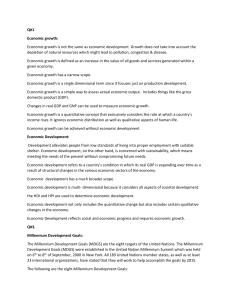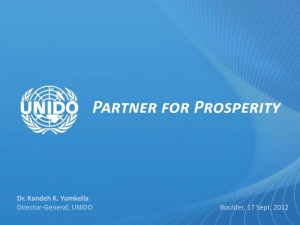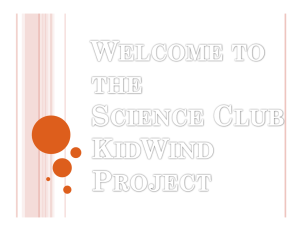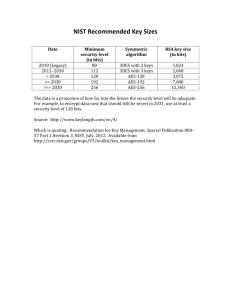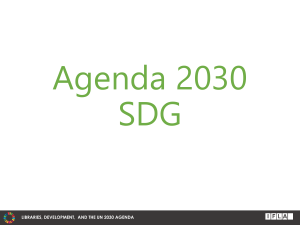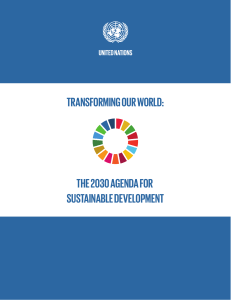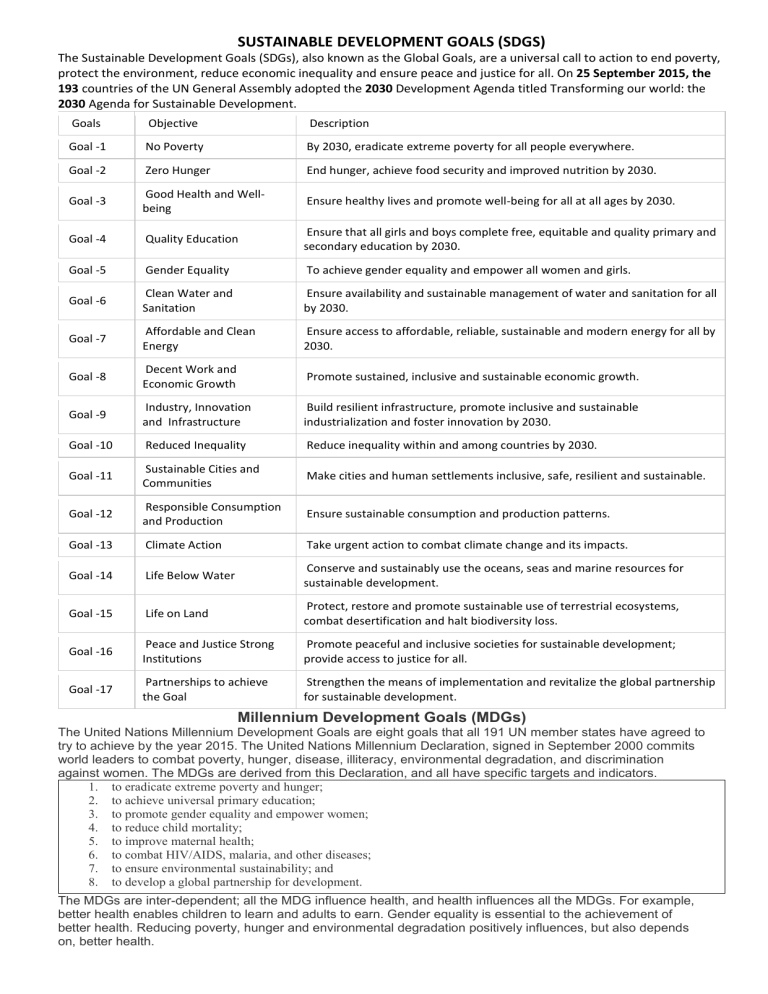
SUSTAINABLE DEVELOPMENT GOALS (SDGS) The Sustainable Development Goals (SDGs), also known as the Global Goals, are a universal call to action to end poverty, protect the environment, reduce economic inequality and ensure peace and justice for all. On 25 September 2015, the 193 countries of the UN General Assembly adopted the 2030 Development Agenda titled Transforming our world: the 2030 Agenda for Sustainable Development. Goals Objective Description Goal -1 No Poverty By 2030, eradicate extreme poverty for all people everywhere. Goal -2 Zero Hunger End hunger, achieve food security and improved nutrition by 2030. Goal -3 Good Health and Wellbeing Ensure healthy lives and promote well-being for all at all ages by 2030. Goal -4 Quality Education Ensure that all girls and boys complete free, equitable and quality primary and secondary education by 2030. Goal -5 Gender Equality To achieve gender equality and empower all women and girls. Goal -6 Clean Water and Sanitation Ensure availability and sustainable management of water and sanitation for all by 2030. Goal -7 Affordable and Clean Energy Ensure access to affordable, reliable, sustainable and modern energy for all by 2030. Goal -8 Decent Work and Economic Growth Promote sustained, inclusive and sustainable economic growth. Goal -9 Industry, Innovation and Infrastructure Build resilient infrastructure, promote inclusive and sustainable industrialization and foster innovation by 2030. Goal -10 Reduced Inequality Reduce inequality within and among countries by 2030. Goal -11 Sustainable Cities and Communities Make cities and human settlements inclusive, safe, resilient and sustainable. Goal -12 Responsible Consumption and Production Ensure sustainable consumption and production patterns. Goal -13 Climate Action Take urgent action to combat climate change and its impacts. Goal -14 Life Below Water Conserve and sustainably use the oceans, seas and marine resources for sustainable development. Goal -15 Life on Land Protect, restore and promote sustainable use of terrestrial ecosystems, combat desertification and halt biodiversity loss. Goal -16 Peace and Justice Strong Institutions Promote peaceful and inclusive societies for sustainable development; provide access to justice for all. Goal -17 Partnerships to achieve the Goal Strengthen the means of implementation and revitalize the global partnership for sustainable development. Millennium Development Goals (MDGs) The United Nations Millennium Development Goals are eight goals that all 191 UN member states have agreed to try to achieve by the year 2015. The United Nations Millennium Declaration, signed in September 2000 commits world leaders to combat poverty, hunger, disease, illiteracy, environmental degradation, and discrimination against women. The MDGs are derived from this Declaration, and all have specific targets and indicators. 1. to eradicate extreme poverty and hunger; 2. to achieve universal primary education; 3. to promote gender equality and empower women; 4. to reduce child mortality; 5. to improve maternal health; 6. to combat HIV/AIDS, malaria, and other diseases; 7. to ensure environmental sustainability; and 8. to develop a global partnership for development. The MDGs are inter-dependent; all the MDG influence health, and health influences all the MDGs. For example, better health enables children to learn and adults to earn. Gender equality is essential to the achievement of better health. Reducing poverty, hunger and environmental degradation positively influences, but also depends on, better health.
